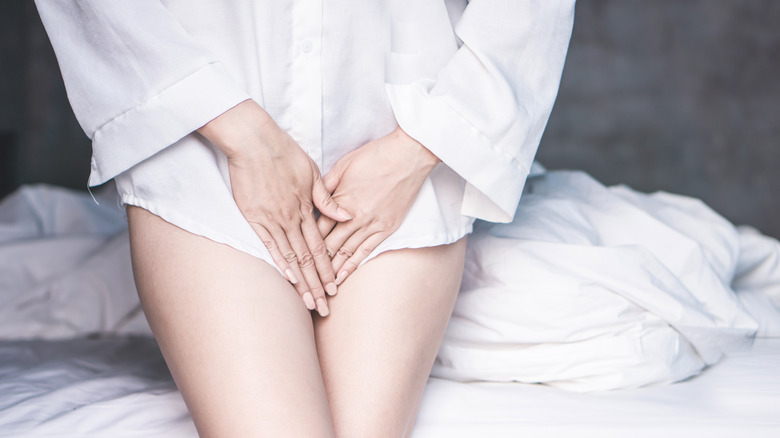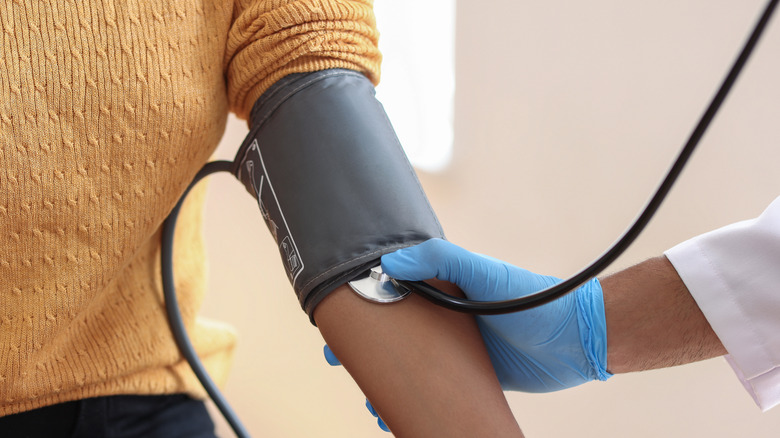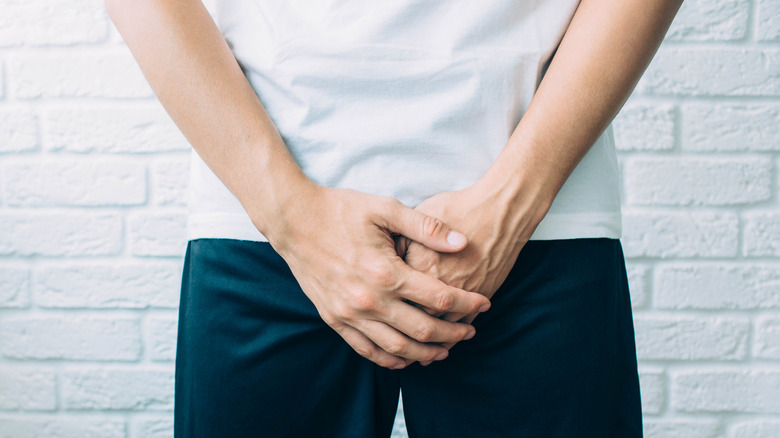When You Hold Your Pee, This Is What Happens To Your Blood Pressure
When you feel the urge to tinkle, you should be looking for a bathroom. This is not just sound advice from your parents. It's also what health professionals recommend.
If you want to avoid urinary tract infections (UTIs), bladder stones, bladder stretching, and pelvic floor damage, go when you have to go. What you might not know is that holding in urine can also have an impact on your body that has nothing to do with your lower body region. We're talking about your blood pressure.
Although not grouped among the more concerning factors that affect your blood pressure like your age, diet, family history and genetics, alcohol consumption, sleep habits, and medications, the humble act of peeing is one of the more surprising things that affect your blood pressure. Your blood pressure goes up when you hold in your pee. Some experts think a full bladder can move your blood pressure up by as much as 10 points.
How not peeing and high blood pressure are connected
According to a 2011 study published in the Korean Journal of Family Medicine, not emptying your bladder for three hours since you last urinated, increases systolic and diastolic blood pressure temporarily.
When your bladder is full, you are exerting pressure on your kidneys, and this could cause a hike in blood pressure. However, according to urology resident Dr. Martina Ambardjieva, per BestLife, something else could be going on as well.
"It is thought that distention of the urinary bladder can increase blood pressure because it causes an increase in sympathetic activity. This increased activity results in an increase of heart rate, constriction of arterioles, and increased peripheral vascular resistance," explained the expert. Either way, health professionals recommend that you empty your bladder before a blood pressure reading to get a more accurate measurement. Pee and blood pressure share a few more connections as well.
Other ways your bladder and blood pressure interact
Some experts think that a higher blood pressure reading might even alert you to a urinary problem of not emptying your bladder well enough. A 2014 report published in the Indian Journal of Anesthesia noted that urinary bladder distension (a condition where the pouch that holds your urine has stretched to hold more fluid) could present in cardiovascular manifestations like elevated blood pressure.
High blood pressure or hypertension can also lead to urinary problems, but not directly. Blood pressure medications like alpha-blockers and diuretics used to treat the condition could lead to urinary incontinence. With alpha-blockers, what happens is that they lower your blood pressure by relaxing your blood vessels and boosting blood flow. This could, in turn, relax the muscles of the bladder and lead to urinary incontinence, although this is more likely in women. With diuretics, also referred to as "water pills," the goal is to reduce blood pressure by ridding your body of excess salt and fluid. These medications stimulate the kidneys to do the job. A faster-filling bladder is a side effect of this function. You might experience urinary incontinence or an overactive bladder (OAB) because of this.
Ultimately, however, high blood pressure is a serious condition that's caused by a number of different factors. Plaque buildup in the arteries, adrenal gland tumors, congenital heart defects, thyroid issues, kidney disease, or an unhealthy lifestyle can all be culprits. If you think you may have bladder emptying issues that are showing up as elevated readings, it's worth discussing this with your doctor.



